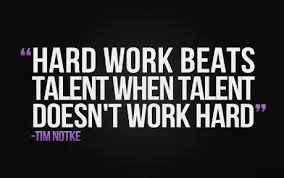At the beginning of my varsity cross-country and track career, I was asked a lot, “why are you a runner?” as I worked so hard just to finish near the bottom. Later on, the question changed to “how did you get your coaches to like and respect you”? I understood where they were coming from in many ways as I was working hard just to finish the race while teammates were competing for top finishes. However, it was so disappointing that they couldn’t see the full picture of why I never gave up running. Couldn’t they see running lead to so many personal and social gains and learning many life lessons?
For example, right away after joining cross-country, those around me noticed a tremendous difference in my demeanor. I believe this was because, at each practice, I was increasing my miles; therefore, my confidence was growing. I noticed I was capable of doing so much more than I was giving myself credit for. While I always had a great work ethic, my demeanor and confidence needed some work. I found running made me less stubborn and more pleasant; therefore, adults working with me truly enjoyed being with me so much more. Jim, my cross-country coach, had two key expectations; to do your best and always be respectful. I followed these, and as a result, more and more adults wanted to support me.
 Being a three-season runner also helped me be so much more connected to my peers and the faculty. For example, during Cross country season, I loved it when my track coach and other coaches would ask me how my races went, and regardless of how good or bad it went, there was always a great conversation that followed. I also loved how teachers and peers would read the articles about our races and would often have nice comments to share about me and seemed so impressed by my determination to run 5K’s. I had always participated in winter and outdoor track, but these kinds of connections weren’t there since I only competed in exhibition sprint races. However, by joining cross country, I was also able to develop these types of connections.
Being a three-season runner also helped me be so much more connected to my peers and the faculty. For example, during Cross country season, I loved it when my track coach and other coaches would ask me how my races went, and regardless of how good or bad it went, there was always a great conversation that followed. I also loved how teachers and peers would read the articles about our races and would often have nice comments to share about me and seemed so impressed by my determination to run 5K’s. I had always participated in winter and outdoor track, but these kinds of connections weren’t there since I only competed in exhibition sprint races. However, by joining cross country, I was also able to develop these types of connections.
Furthermore, socially, this experience was especially beneficial for me during my winter track season. Our meets were on Friday or Saturday nights, so I never faced being alone on the weekends during the winter months. Being an incredibly involved member of my track team, I was with such great people, and my social skills greatly improved. One of my best memories was when one of the top jumpers and an overall school leader said to me, “Eileen, you’re hilarious,” and running two-track seasons together, we gradually formed a meaningful friendship. In addition, on Monday mornings, I was often asked by others how the meet went or was given a nice compliment about what my coach Penny had said about my efforts in the races. These types of conversations and friendships continued in spring track too. I can’t tell you how good this made me feel. I truly saw how structured activities allow for social and personal growth for students with a disability like an NVLD.
In terms of gaining respect and being liked by both Penny and Jim , many couldn’t understand how these two coaches enjoyed supporting the underdog as much as the winner, especially if they worked as hard or even harder. This was the case for me; therefore, I was given a tremendous amount of respect and was well-liked by both of them as, regretfully, some of the stronger runners on my teams weren’t capitalizing on their talent. In my personal experience, the majority of Track and Cross-Country coaches seemed to value hard workers, too, as they liked and respected me as well. Therefore I believe sports like cross-country and track are very beneficial for an individual with an NVLD or similar disability. Regardless of your talent, hard work and determination will lead to positive outcomes like gaining wonderful mentors and lifelong friends.
Overall I hope more and more people will begin to understand how beneficial individual sports like running are for the NVLD student. It really leads to gaining more friends and becoming a better student, as typically, NVLD students learn best by experiences and observation.
It also leads to gaining widespread support, too as your coaches and teammates see daily how much you are overcoming, so they want to help you be the best person you can be. Honestly, when I think about my teenage years, I still say being a three-season runner kept me from doing the journey alone and increased my self-confidence, which helped me tremendously be the person I am today.
Eileen
Eileen is a Project Social Ambassador and blogger for The NVLD Project. She loves helping others understand they can achieve their goals and dreams through hard work and dedication.
Share your own story







